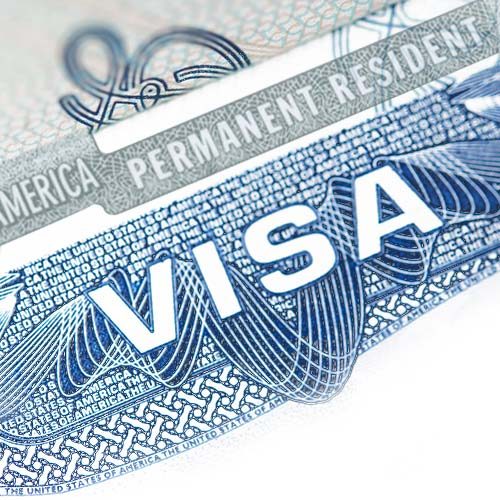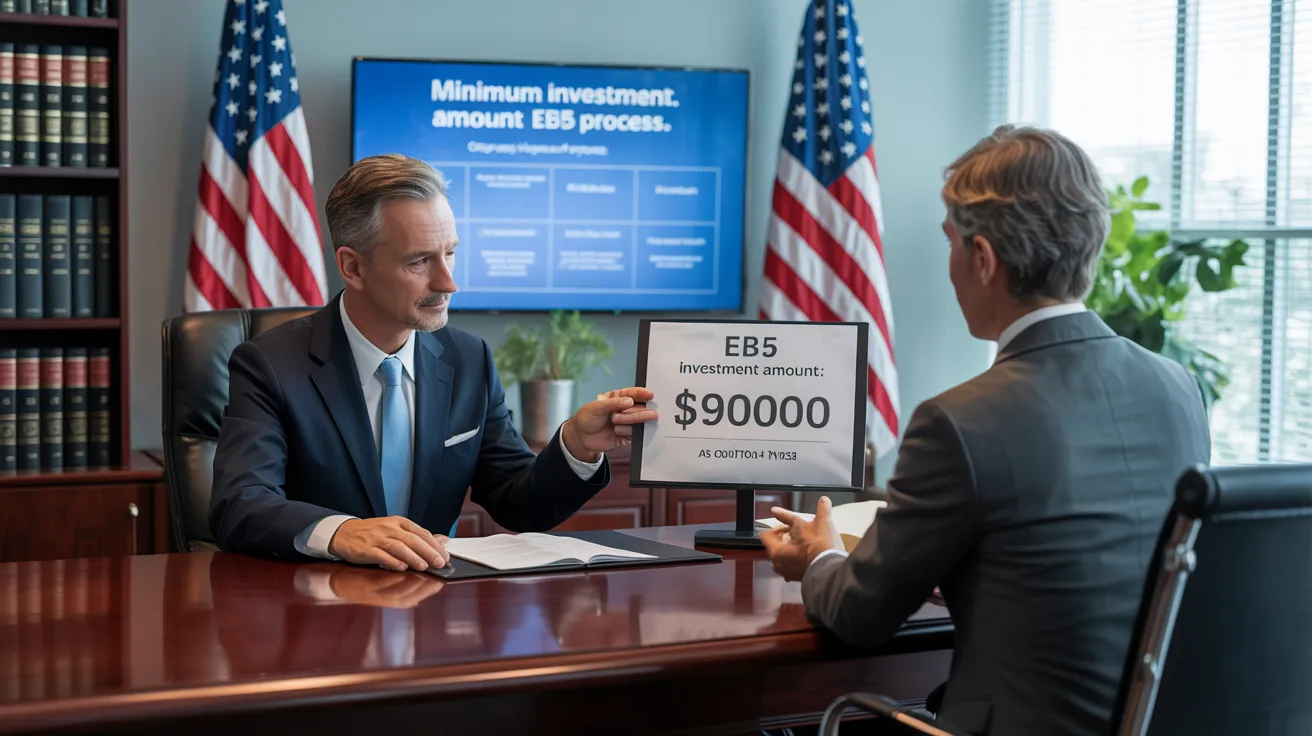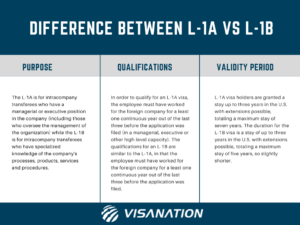The 4-Minute Rule for L1 Visa
Table of ContentsThe 3-Minute Rule for L1 VisaIndicators on L1 Visa You Should KnowThe smart Trick of L1 Visa That Nobody is DiscussingFacts About L1 Visa UncoveredRumored Buzz on L1 VisaAll About L1 Visa
Readily Available from ProQuest Dissertations & Theses Worldwide; Social Scientific Research Premium Collection. DHS Office of the Examiner General. Gotten 2023-03-26.
United State Division of State. Recovered 2023-02-08. Tamen, Joan Fleischer (August 10, 2013).
Some Of L1 Visa
In order to be qualified for the L-1 visa, the foreign company abroad where the Recipient was used and the U.S. business should have a certifying partnership at the time of the transfer. The different sorts of certifying partnerships are: 1. Parent-Subsidiary: The Parent indicates a firm, company, or other lawful entity which has subsidiaries that it owns and manages."Subsidiary" means a company, corporation, or other legal entity of which a parent has, directly or indirectly, more than 50% of the entity, OR owns less than 50% however has monitoring control of the entity.
Firm A has 100% of the shares of Firm B.Company A is the Parent and Company B is a subsidiary. There is a certifying partnership in between the 2 business and Firm B must be able to fund the Beneficiary.
Example 2: Firm A is included in the U - L1 Visa.S. and wishes to request the Recipient. Company B is included in Indonesia and uses the Beneficiary. Company A possesses 40% of Business B. The staying 60% is had and regulated by Company C, which has no connection to Company A.Since Firm A and B do not have a parent-subsidiary partnership, Business A can not sponsor the Beneficiary for L-1.
Company A has 40% of Business B. The staying 60% is had by Business C, which has no relation to Company A. However, Company A, by official arrangement, controls and full manages Company B.Since Business An owns much less than 50% of Firm B yet handles and manages the business, there is a qualifying parent-subsidiary connection and Firm A can fund the Recipient for L-1.
The Ultimate Guide To L1 Visa
Associate: An associate is 1 of 2 subsidiaries thar are both had and controlled by the same parent or person, or owned and controlled by the very same group of individuals, in essentially the exact same ratios. a. Instance 1: Business A is incorporated in Ghana and employs the Recipient. Company B is included in the U.S.
Firm C, also integrated in Ghana, possesses 100% of Firm A and 100% of Company B.Therefore, Business A and Company B are "associates" or sister firms and a qualifying relationship exists between both firms. Firm B need to be able to sponsor the Recipient. b. Example 2: Company A is integrated in the U.S.
Business A is 60% possessed by Mrs. Smith, 20% had by Mr. Doe, and 20% had by Ms. Brown. Firm B is included in Colombia and presently uses the Recipient. Firm B is 65% possessed by Mrs. Smith, 15% had by Mr. Doe, and 20% owned by Ms. Brown. Company A and Firm B are affiliates and have a certifying partnership in two different methods: Mrs.
The L-1 visa is an employment-based visa category established by Congress in 1970, enabling international business to move their managers, executives, or essential workers to their united state operations. It is frequently L1 Visa requirements described as the intracompany transferee visa. There are 2 primary sorts of L-1 visas: L-1A and L-1B. These kinds appropriate for workers worked with in various positions within a company.

Additionally, the recipient must have operated in a managerial, executive, or specialized employee placement for one year within the 3 years coming before the L-1A application in the foreign firm. For new workplace applications, international work must have been in a managerial or executive capability if the recipient is involving the United States to function as a supervisor or exec.
Rumored Buzz on L1 Visa

If granted for a united state business operational for greater than one year, the initial L-1B visa is for up to 3 years and can be expanded for an extra 2 years (L1 Visa). Conversely, if the united state company is recently established or has actually been functional for less than one year, the first L-1B visa is issued for one year, with extensions offered in two-year increments
The L-1 visa is an employment-based visa group established by Congress in 1970, permitting international business to move their supervisors, execs, or key personnel to their U.S. procedures. It is frequently referred to as the intracompany transferee visa. There are 2 primary kinds of L-1 visas: L-1A and L-1B. These types are ideal for staff members employed in various placements within a business.
Getting My L1 copyright Work
Furthermore, the beneficiary must have operated in a supervisory, executive, or specialized worker placement for one year within the three years preceding the L-1A application in the international company. For brand-new office applications, international work needs to have been in a managerial or executive capability if the recipient is concerning the USA to work as a L1 Visa process supervisor or executive.
for as much as seven years to oversee the operations of the U.S. affiliate as an executive or manager. If released for an U.S. firm that has actually been functional for greater than one year, the L-1A visa is originally provided for as much as 3 years and can be expanded in two-year increments.
If granted for an U.S. firm operational for even more than one year, the initial L-1B L1 Visa guide visa is for up to 3 years and can be extended for an added two years. Alternatively, if the united state firm is freshly developed or has actually been functional for much less than one year, the first L-1B visa is provided for one year, with extensions offered in two-year increments.